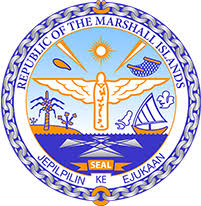Majuro, Marshall Islands – The Asian Development Bank (ADB) and the Republic of Marshall Islands (RMI) have officially launched a groundbreaking $17 million energy transition project aimed at modernizing the country’s power infrastructure and advancing its clean energy goals.
The Energy Transition Project is strategically aligned with ADB’s Strategy 2030, which emphasizes climate change mitigation, resilience, and sustainability. Recognizing that the RMI is particularly vulnerable to climate-related challenges, this project aims not only to enhance governance and institutional capacity but also to provide a robust framework for planning, design, and implementation of energy infrastructure.
The project, which became effective on January 20, 2025, will transform electricity delivery in Majuro, home to nearly half of the country’s population, while supporting RMI’s ambitious climate targets of reducing diesel consumption for power generation by 65% by 2025, with a long-term goal of achieving 100% renewable energy by 2050. It will also address critical infrastructure challenges while positioning the Marshalls Energy Company (MEC) to lead the nation’s ambitious transition to clean energy.
“This isn’t just about replacing power lines – it’s about transforming how we deliver energy to our communities,” said Jack Chong Gum, CEO of MEC. “For too long, our residents have faced power interruptions and reliability issues. With this project, we’re not just fixing problems; we’re building the foundation for a modern, resilient power system that can support our islands’ growth for decades to come.”
The transformation will unfold across three major fronts, each delivering direct benefits to MEC’s customers:
- Grid Modernization: Installation of a new substation and 10 miles of new distribution lines, specifically designed to withstand Pacific climate conditions. This upgrade targets Majuro’s high power interruption rates and will particularly benefit the communities of Rita and Laura, which have historically faced the most severe reliability issues.
- Clean Energy Innovation: Pioneer deployment of marine and wind energy technologies, marking MEC’s first major step beyond traditional power sources. This diversification will help stabilize energy costs for customers over the long term, reducing the islands’ dependency on expensive imported diesel fuel that has historically driven up electricity bills. The new renewable systems will also provide cleaner air and a healthier environment for local communities.
- Future-Ready Utility: Comprehensive institutional strengthening that includes implementation of a new sector law, improved operational efficiency, and enhanced capacity for managing modern energy systems. For customers, this translates to more reliable service through bolstered maintenance programs, transparent cost-based tariffs, and improved system efficiency. The reforms will empower MEC to effectively manage sophisticated renewable energy systems while ensuring sustainable, long-term service delivery.
The project will directly address one of Majuro’s most pressing challenges – its aging power distribution network, which currently suffers some of the highest interruption rates in the Pacific region, along with system losses exceeding 22%.
Chong-Gum added, “By modernizing our power infrastructure, we’re not just improving reliability; we’re laying the groundwork needed to integrate more renewable energy sources and meet the Government’s climate commitments.” He further stated, “The current 22% loss of energy illustrates not only a financial waste that drives up costs for our customers, but it also highlights our urgent need for improved efficiency. This project is essential for transforming those losses into resources that will lower electricity rates, ensure more reliable services, and ultimately create a foundation for affordable, sustainable electricity that will serve our community for generations to come.”
The initiative complements ongoing efforts by other development partners, fostering a comprehensive approach to the RMI’s energy transition. Implementation will begin immediately, with completion targeted for December 2028.
Regular updates on this transformative initiative will be provided on our website at www.mecrmi.com as the project progresses.
